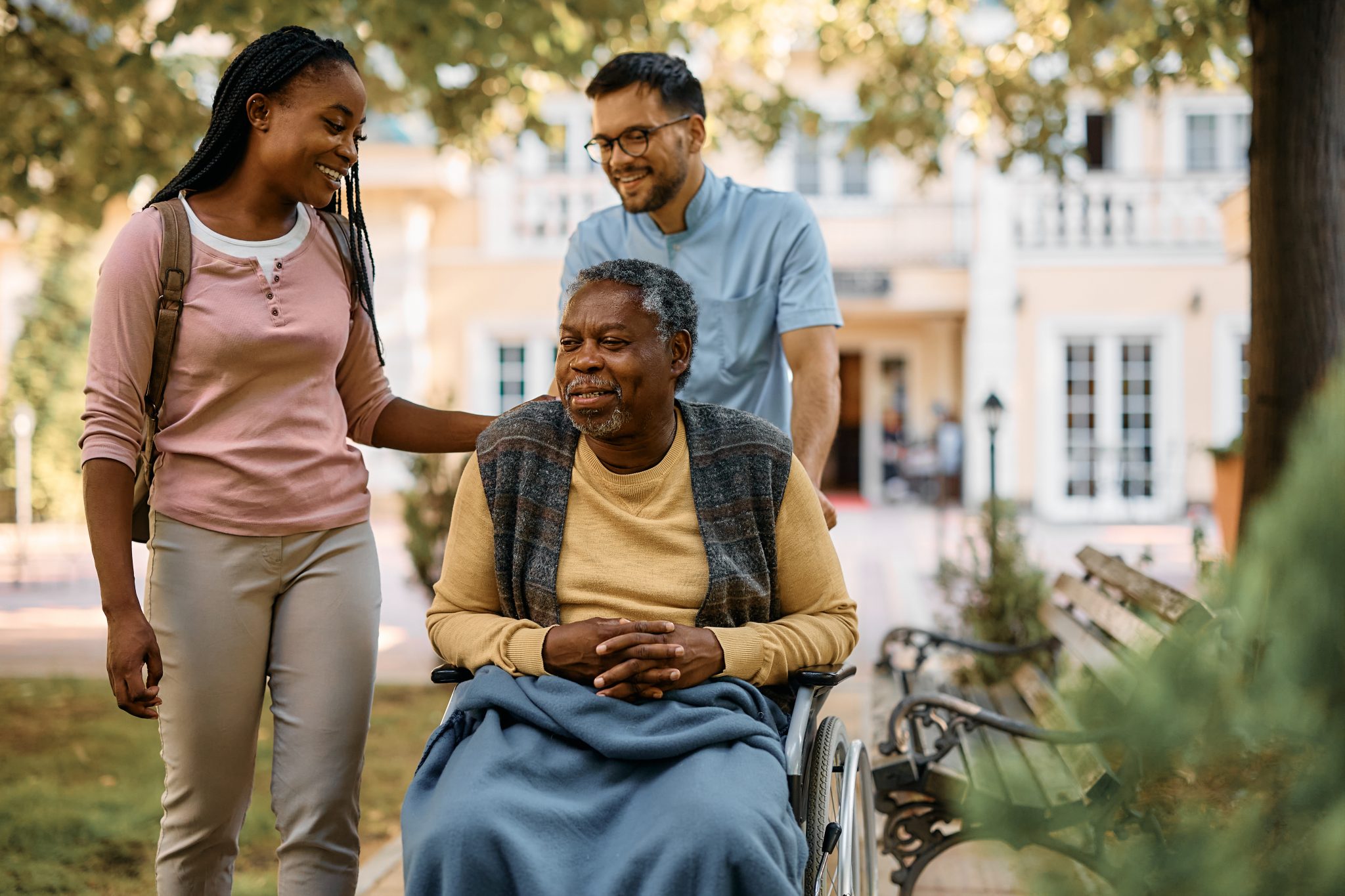As we get older, we may sometimes find ourselves facing some complex health challenges, with surgeries for seniors becoming increasingly commonplace. The ageing process can bring about physical changes and an increased susceptibility to certain conditions, meaning surgical interventions might be necessary to maintain a good quality of life.
Any surgery comes with risks, of course, and as we get older, our bodies may not bounce back as quickly or as resiliently as they once did.
Some of the more common surgeries you’re likely to face as you get older are:
1. Hip replacement surgery
Hip replacement surgery involves removing a diseased or damaged hip joint and replacing it with an artificial joint. This procedure is common among seniors, often due to conditions such as osteoarthritis, rheumatoid arthritis, or hip fractures.
Why you might need it: You’re more likely to need hip replacement surgery due to wear and tear on the joint, loss of bone density, and a higher susceptibility to falls and fractures.
Hip replacement recovery: The procedure typically takes a couple of hours, with recovery time varying depending on your overall health. For hip replacement aftercare, most patients are encouraged to start walking with assistance the day after surgery to prevent blood clots and improve recovery. Full recovery and regaining strength can take anywhere from a few weeks to several months. Physical therapy plays a crucial role in helping patients regain mobility and strength in the hip area.

2. Cataract surgery
A cataract procedure is used to remove the cloudy lens of an eye and replace it with an artificial one. Cataracts lead to blurred vision and eventual vision loss if left untreated.
Why you might need it: Ageing is a significant factor contributing to the development of cataracts. Other risk factors include prolonged exposure to sunlight, smoking, and certain medical conditions like diabetes.
Cataract surgery recovery: Cataract surgery is generally a short procedure, lasting around 20 minutes. Recovery is relatively quick, with most patients noticing an improvement in vision within a few days. However, complete healing may take several weeks. It’s essential to follow cataract surgery aftercare instructions carefully, including using prescribed eye drops, and avoiding activities that could strain your eyes.
3. Knee replacement surgery
A knee replacement operation involves removing a damaged knee joint and replacing it with an artificial one. It is a common procedure for those dealing with severe knee pain or mobility issues due to arthritis or injury.
Why you might need it: The main reason for undergoing knee replacement surgery is to relieve pain and improve mobility in cases where other treatments like medication or physical therapy have not been successful.
Knee replacement recovery: The surgery can take up to two hours, with recovery time varying based on your health and age. Physical therapy starts soon after the surgery to encourage movement and prevent stiffness in the knee. Knee replacement aftercare and full recovery can take several months, and consistent rehabilitation exercises are key to regaining strength and mobility.

4. Gallbladder removal
Gallbladder removal, or cholecystectomy, is a procedure to remove the gallbladder, often due to gallstones causing pain or infection.
Why you might need it: Factors that can make you more prone to gallstones include obesity, some medical conditions, and a decrease in gallbladder function. Gallstones can lead to severe pain, infection, and other complications if not treated.
Gallbladder surgery recovery: There are two main types of gallbladder removal surgery: open cholecystectomy and laparoscopic cholecystectomy. The laparoscopic option is less invasive and has a quicker recovery time, typically allowing patients to go home the same day. Recovery from laparoscopic surgery usually takes about a week, while recovery from open surgery can take longer.
5. Coronary artery bypass surgery
Coronary artery bypass surgery (also known as heart bypass surgery) improves blood flow to the heart by bypassing blocked or narrowed arteries. It is a common procedure for people with serious coronary heart disease.
Why you might need it: Ageing can lead to a buildup of fatty deposits in the arteries, causing them to narrow and reduce blood flow to the heart. This can result in chest pain, shortness of breath, and other symptoms of coronary artery disease.
Coronary bypass recovery: Surgery is a major operation that requires a hospital stay of a week or more. Coronary bypass aftercare at home can take several weeks, with full recovery taking up to several months. Rehabilitation, including physical therapy and lifestyle changes, plays a crucial role in recovery.

6. Prostate surgery
Prostate surgery includes various procedures to address issues related to the prostate gland, such as an enlarged prostate or prostate cancer.
Why you might need it: An enlarged prostate can cause urinary problems, while prostate cancer necessitates removal of the gland. Both conditions are more common in older men.
Prostate surgery recovery: The type of surgery and recovery time will depend on the specific condition and procedure. For benign conditions like an enlarged prostate, procedures are less invasive, with quicker recovery times. Prostate cancer surgery is more complex and may require a longer recovery period, with additional treatments like radiation or hormone therapy.
If you’re a senior who already receives Aged Care support, or you have had an ACAT assessment, you may be eligible for Respite Care while you recover from surgery. Respite care can offer your carer a well-earned break and it comes with the added care of a team of professional healthcare providers to assist you in your recovery.
Fill out the form below to book a free consultation with our Respite Care Team.
Get in touch
Book a Free Consultation with our Respite Care Team and they can answer your questions and help guide you through the application process.



